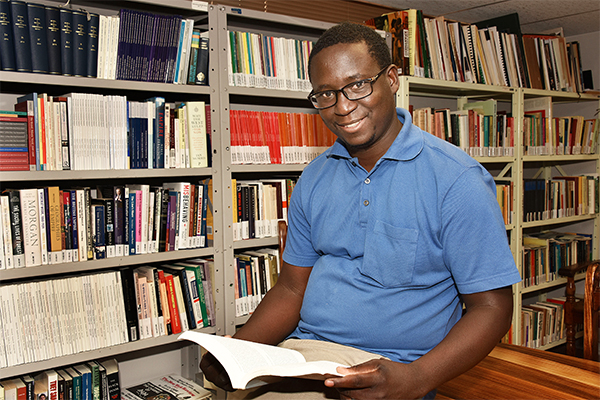Latest News Archive
Please select Category, Year, and then Month to display items
06 November 2020
|
Story Rulanzen Martin
|
Photo Supplied
 Dr Tronél Hellberg, UFS alumna, completed her PhD in Music from the OSM in 2018.
Dr Tronél Hellberg, UFS alumna, completed her PhD in Music from the OSM in 2018.
The COVID-19 pandemic and subsequent lockdown has posed many challenges. Not only has it distrupted our normal way of life it but has created a ‘new normal.’ Even in these trying times, alumni from the University of the Free State (UFS) have adjusted to the new normal by going above and beyond to make it as normal as possible.
One of these is Dr Tronél Hellberg, an alumna from the
Odeion School of Music at the UFS, who has supported Grade 12 learners by presenting free online prescribed music theory classes. The classes are beneficial for learners following the CAPS or IEB curriculum. “I trust the online videos will assist learners and teachers to get through this challenging Grade 12 year,” says Dr Hellberg. She has
recorded more than 38 live videos on her
G-Sential Theory of Music Facebook page.
The recordings are accessible to Grade 12 learners and their teachers at no cost. Dr Hellberg established the
G-Sential Theory of Music in 2007 and has since published 20 theory of music books.
Apart from assisting in teaching, one of her main objectives is to reach less fortunate learners who do not have access to music teachers. “Grade 12 music literacy requires an accumulative understanding of theory of music,” she says. With her initiative she also aims to “fill any gaps” to solidify knowledge and information which might still be unclear.
Land a fertile field for historians
2017-12-25

Dr Admire Mseba, historian and researcher in the International Studies Group (ISG).
Photo: Charl Devenish
The use of land and the economics of Southern Africa at present is a contentious subject at almost every level of society. A historian and researcher who revels in happenings in these two areas, is Dr Admire Mseba, a postdoctoral research fellow in the International Studies Group (ISG) at the UFS.
Dr Mseba grew up in the Mberengwa region in southern Zimbabwe, known for cattle farming and mineral mining. While at the University of Zimbabwe, he became interested in economic history and archaeology, and completed his PhD at the University of Iowa in the USA. During his time there, Dr Mseba also became passionate about environmental history.
A historian's ability to think and engage critically on diverse subjects drew Dr Mseba to his field. Currently, he is busy with three research projects. Firstly, he is working on a book on social relations, about access to land in Zimbabwe. He is also examining regional and national efforts to control migratory pests during the 20th century, in particular, the red locust. In collaboration with a colleague at the ISG, Dr Mseba is also researching monetary systems in central Africa, covering the present-day countries of Zimbabwe, Malawi, and Zambia.
Dr Mseba believes future research opportunities in the domains of economic and environmental history abound. For one, the land question has been very topical in Zimbabwe for more than a decade—as it is now in South Africa—and needs more scrutiny. Regarding agrarian pestilences, he indicates the recent phenomenon of armyworm invasion. “There are so many opportunities for historians to investigate. There are so many ways to think about these things and trying to put it in perspective.”